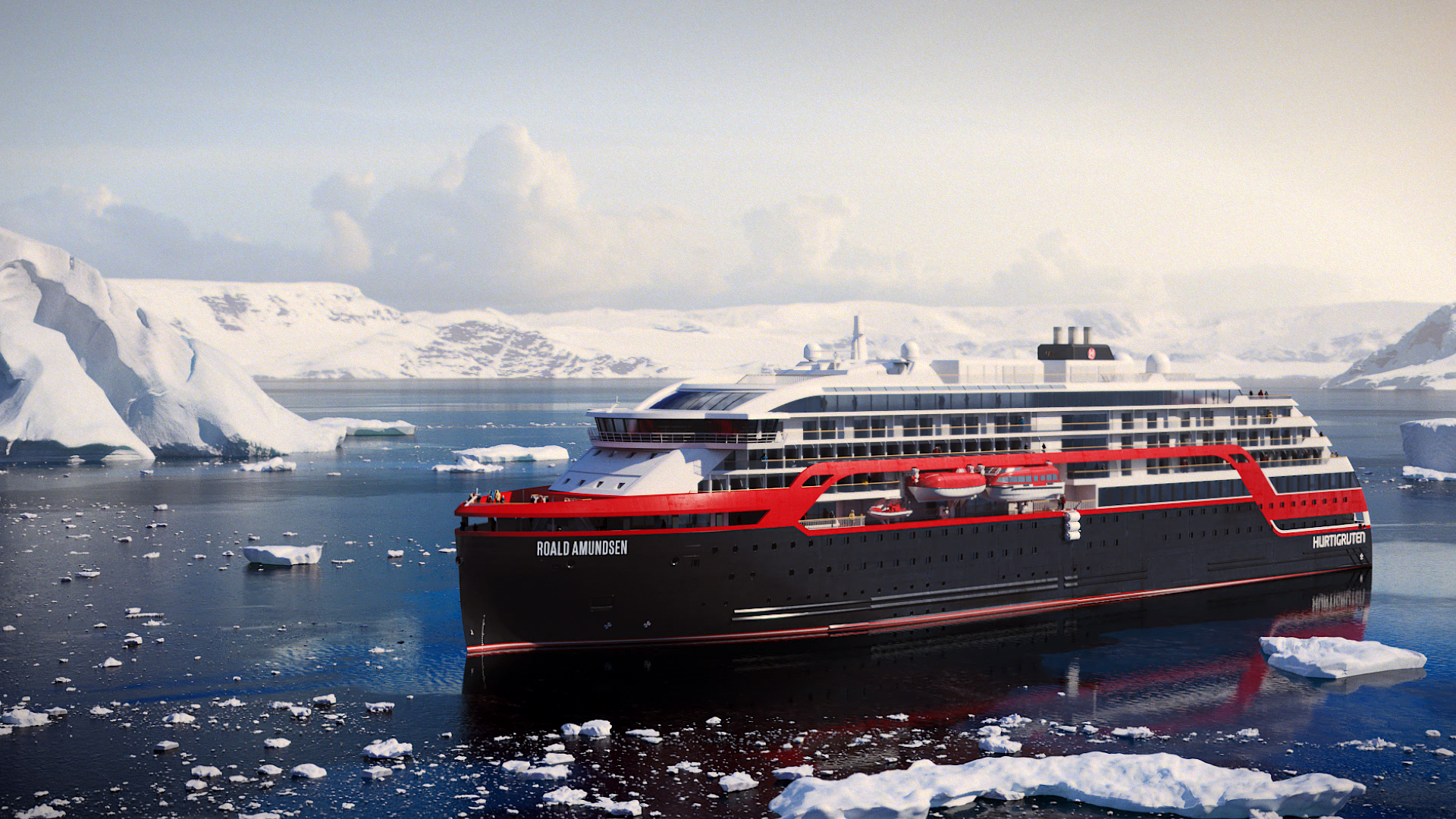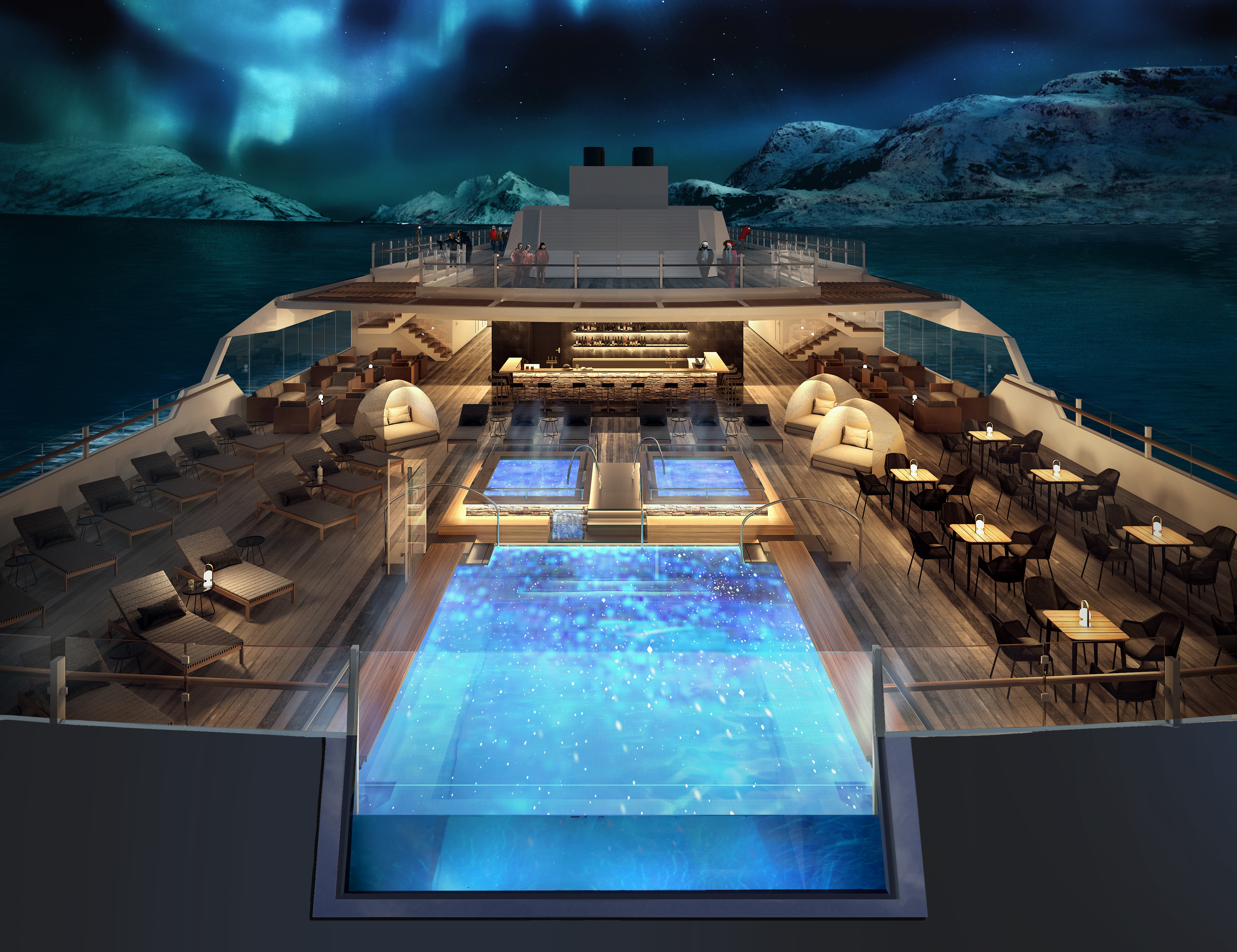Hurtigruten to name two new expedition ships after polar explorers

Norwegian company Hurtigruten’s two new expedition ships built with hybrid technology will be named MS Roald Amundsen and MS Fridtjof Nansen after two of the most influential polar pioneers.
The two vessels are being made with hybrid propulsion and built at Kleven yard in Ulsteinvik, Norway. They will be ready in 2018 and 2019, and will be the first ever expedition ships sailing with all-electric hybrid technology. The new technology will reduce the fuel consumption with approximately 20 percent. Additionally, the new technology enables the ships to sail fully electric for 15 to 30 minutes.
“Norway now takes the lead again, just like Amundsen and Nansen did,” says CEO Daniel Skjeldam from Hurtigruten.
This December marks 105 years since Roald Amundsen became the first person to plant a flag at the South Pole.

CEO Daniel Skjeldam further says that this new generation of expedition ships will completely change what guests can expect from a voyage at sea, combining 120 years of knowledge and experience from Hurtigruten with the most innovative technology and design. The vessels are designed by Rolls Royce and the renowned Norwegian yacht designer Espen Oino.
The new ships will have both high-end technology and high-end design, and MS “Roald Amundsen” and MS “Fridtjof Nansen” will set a new standard when it comes to furnishing and guest experiences, according to Hurtigruten. The aim is to recreate the atmosphere of the era of great voyages of discovery within a modern framework with both quality and comfort.
Both vessels will have large observation platforms on several decks, to make sure that the guests can witness nature and wildlife. Six out of 10 cabins will have private balconies, and two out of 10 cabins are suites. The ships will each have three restaurants, with menus that contain local food from the destinations.
A separate pool deck includes pools, Jacuzzis and bars.
“We do not offer cruises, we offer exploring,” claims Skjeldam.
The exploring experience makes it even more important to provide solutions and surroundings on board that strengthen the nature experiences that guests can take part in with the ship as the floating base camp for adventures. The interior and materials will be inspired by nature, mainly Norwegian, and include oak, birch, granite and wool.
“We are proud to take a global role on climate cuts at sea, and look forward to offer our guests the possibility to sail silently into the edge of the Arctic or Antarctic ice, along the banks of the Amazon river, and other upcoming exciting destinations,” says Skjeldam.